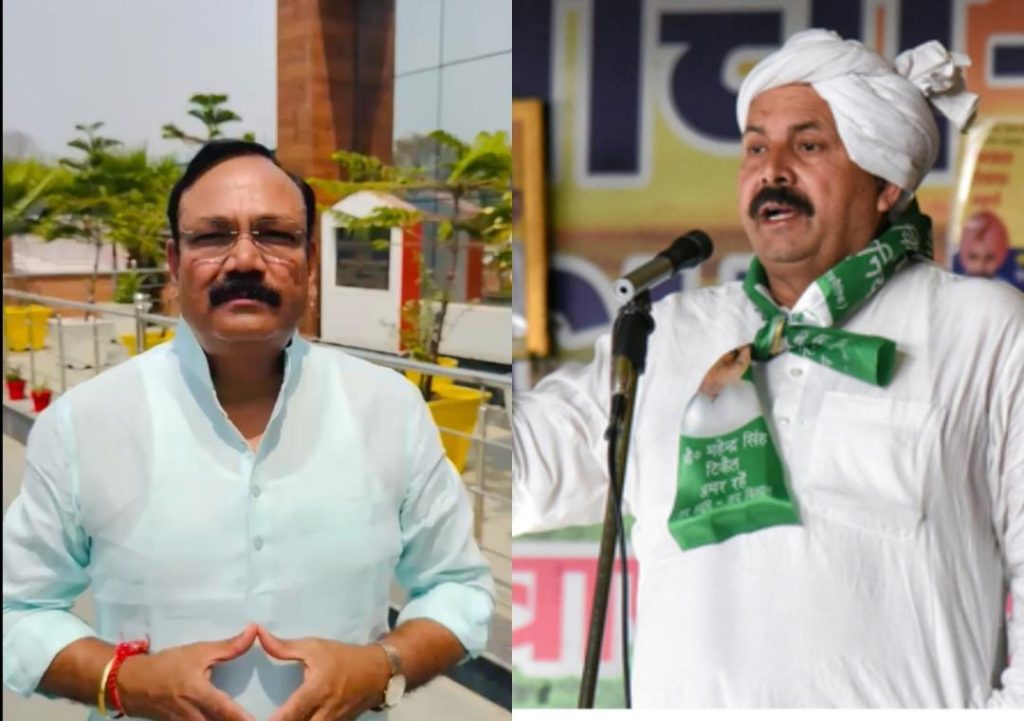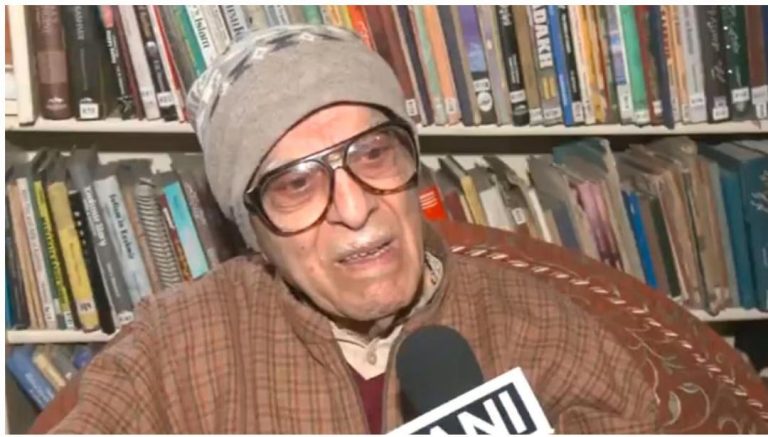
Speaking Pak’s Language: BJP MP on Tikait’s Indus Treaty Remark
The ongoing tussle between the Indian government and the farmers’ unions has taken a new turn with a BJP MP, Rajkumar Chahar, attacking farmer leader Naresh Tikait for his comments on the Indus Waters Treaty. Tikait had recently stated that suspending the Indus Waters Treaty is a wrong decision, sparking a heated debate in the political circles.
Chahar’s criticism of Tikait has added fuel to the fire, with the BJP MP terming Tikait’s remarks as “speaking the language of Pakistan”. Chahar’s harsh words have left many wondering what exactly he meant by this statement and whether it is justified to label a farmer leader as “speaking Pak’s language” simply for disagreeing with the government’s decision.
The Indus Waters Treaty, signed in 1960, is a bilateral agreement between India and Pakistan that governs the sharing of waters from the Indus River and its tributaries. The treaty has been in place for over six decades, and its suspension was announced by the Indian government in August 2020, following a terrorist attack on the Pahalgam area in Jammu and Kashmir.
The suspension of the treaty was seen as a major diplomatic move by the Indian government, which aimed to put pressure on Pakistan to take decisive action against terrorist groups operating from its soil. However, the move has also been criticized by many, including farmer leaders like Tikait, who argue that the suspension of the treaty will have significant implications for the agriculture sector in Punjab and other parts of the country.
Tikait’s remarks were seen as a deviation from the usual stance of farmer leaders, who have historically been known for their strong opposition to the Indian government’s policies. Tikait’s statement was seen as a rare instance of a farmer leader disagreeing with the government’s decision, and Chahar’s criticism of him was seen as an attempt to discredit him and undermine his credibility.
In a statement, Chahar said, “Tikait is speaking the language of Pakistan… He should be ashamed of making such comments. He should apologize to the people of the country.” Chahar’s statement was seen as a personal attack on Tikait, with many accusing him of using divisive language to discredit a political opponent.
However, Chahar’s criticism of Tikait has also been defended by some, who argue that the farmer leader’s remarks were misunderstood and taken out of context. They argue that Tikait’s statement was meant to highlight the negative impact of the treaty’s suspension on the agriculture sector, rather than supporting Pakistan’s stance on the issue.
The controversy surrounding Tikait’s remarks and Chahar’s criticism of him has raised important questions about the role of farmer leaders in the Indian political landscape. Farmer leaders have historically played a significant role in shaping agricultural policy in the country, and their views are often seen as a reflection of the concerns and aspirations of the farming community.
However, the controversy surrounding Tikait’s remarks has also highlighted the challenges faced by farmer leaders in navigating the complex political landscape of India. With the country’s political landscape becoming increasingly polarized, farmer leaders are often caught between their commitment to the farming community and the need to navigate the complex web of political alliances and rivalries.
In conclusion, the controversy surrounding Tikait’s remarks and Chahar’s criticism of him has raised important questions about the role of farmer leaders in the Indian political landscape. While Tikait’s remarks were seen as a deviation from the usual stance of farmer leaders, Chahar’s criticism of him was seen as an attempt to discredit him and undermine his credibility.
As the debate surrounding the Indus Waters Treaty continues to rage on, it is essential to remember that farmer leaders like Tikait play a crucial role in shaping agricultural policy in the country. Their views are often seen as a reflection of the concerns and aspirations of the farming community, and their ability to navigate the complex political landscape of India is crucial to the success of the agricultural sector.





